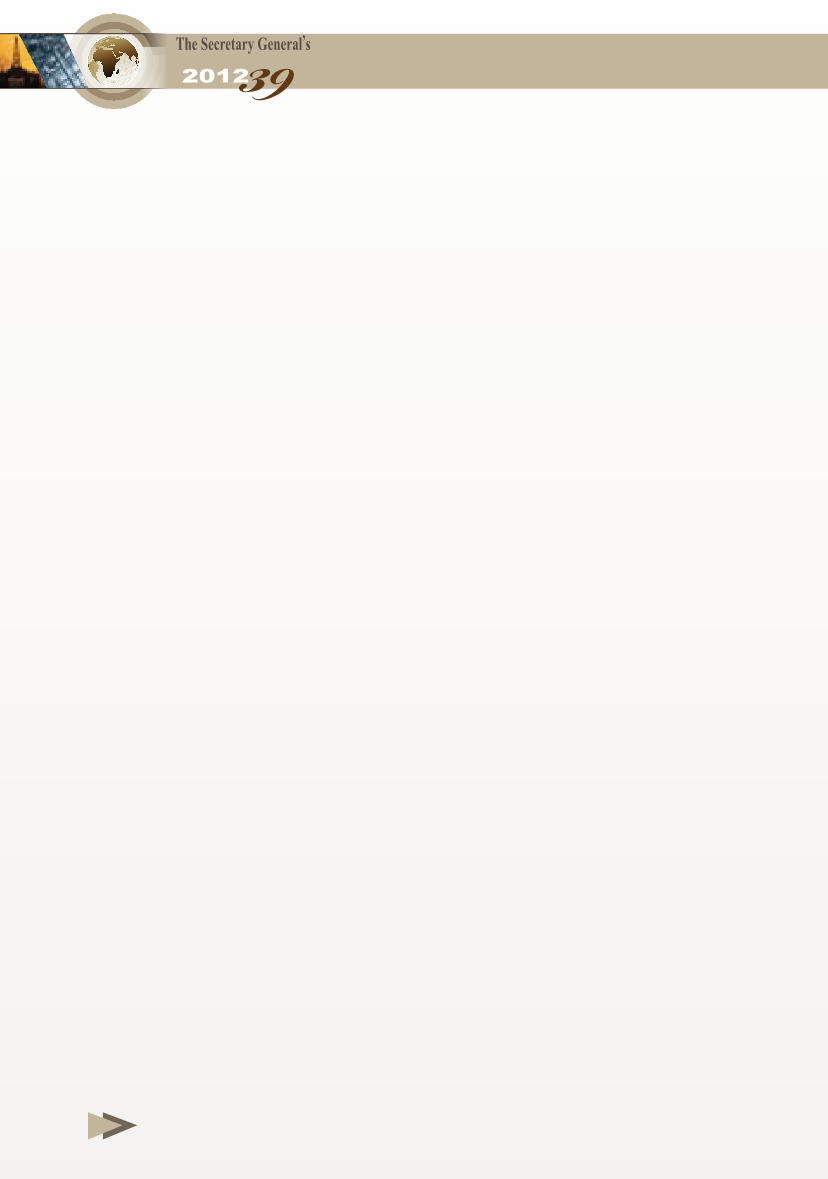
360
39
th
Annual Report
Arabia, Libya, Iraq, Egypt, and Tunisia. Those projects cover different
activities, including petrochemical industries, nitrogen fertilizers, liquefied
petroleum gas (LPG), geophysical services, oil and gas well drilling, and
storage materials for petroleum products.
By the end of 2011 the corporation’s net book value of equity portfolio
amounted to about US$325 million, compared to nearly US$366 million by
the end of 2010. The decline, by about 12.6%, is attributable to two reasons:
divestment from Bahrain National Gas Company. (BANAGAS) during the
fourth quarter of 2011, and the provisioning for certain participations of
APICORP portfolio.
APICORP’s financial statements for 2011 saw a continuing upward
trend of earnings from participations, which increased to about US$100
million, compared to nearly US$67 million earned in 2010. Notably, this
level of dividend distribution for 2011 reflects an unprecedented record in
the history of APICORP equity portfolio.
3. Financial Results in 2011
APICORP posted a net profit of US$105.3 million in 2011, compared to
a net profit of US$92.5 million realized in 2010, an increase by 11% over
the previous year. Operating revenues for 2011 stood at US$159million, net
of cost of funding. APICORP’s general assembly, upon recommendation
by the company’s board of directors, at its meeting held in April in the
Arab Republic of Egypt, approved the distribution of US$45million as
profit for 2011, and the transfer of US$10.5million to the statutory reserve,
and US$94.8 million to the general reserve, from the retained earnings
account.
4. Project Finance Activity for the First Half of 2012
Primary market of project finance activity in the GCC countries and
North Africa suffered from recession during the first quarter of 2012,
while the secondary market for project finance and international trade was


